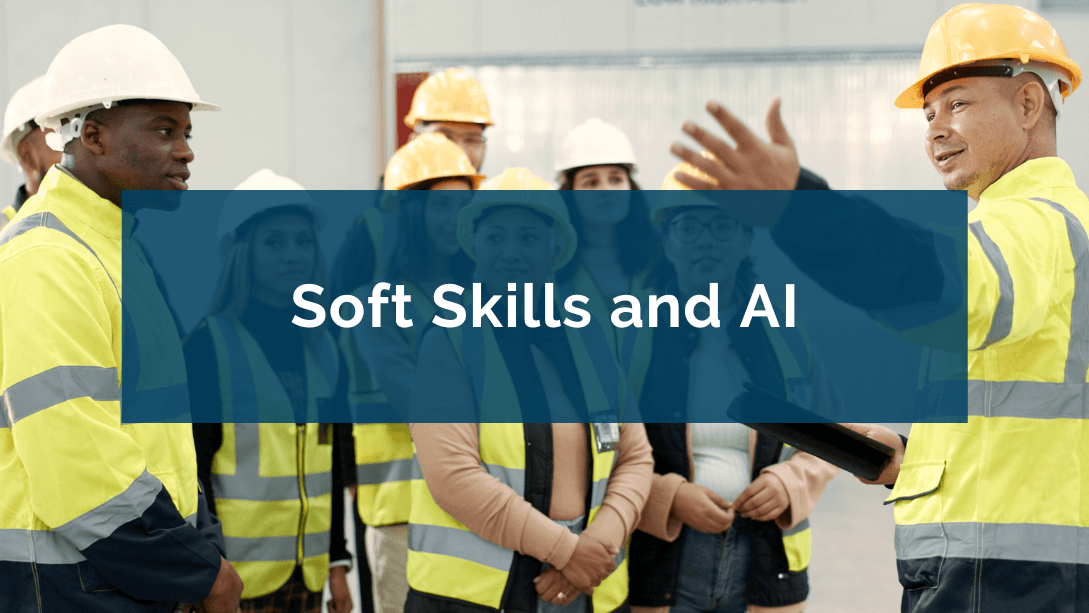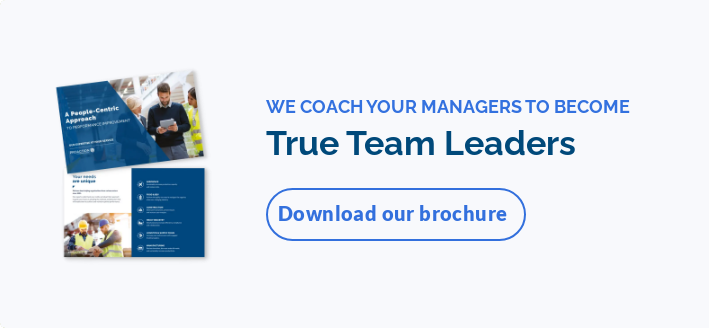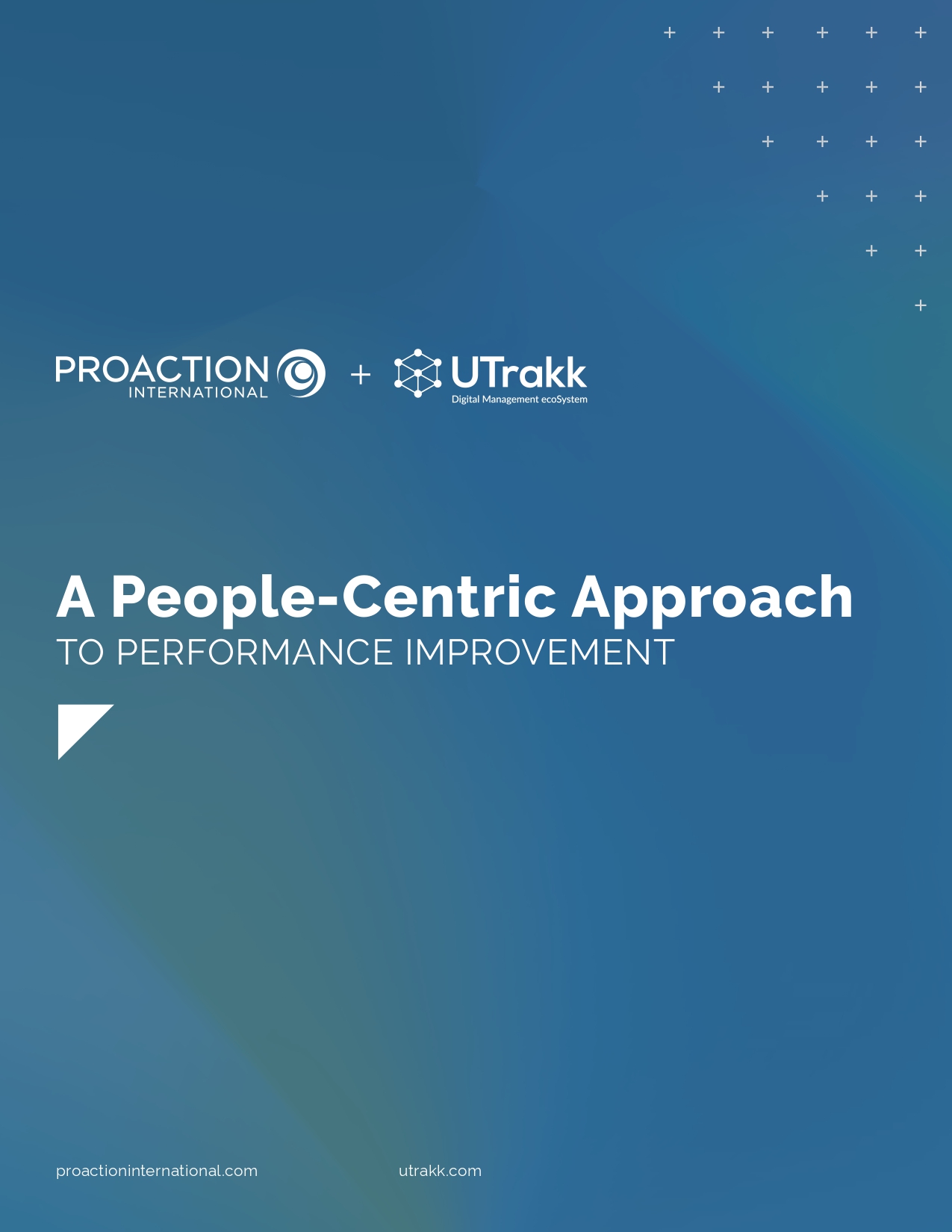Skills evolution in an AI-driven world
Impact of AI tools on technical skills
80% of jobs should see at least 10% of their tasks transformed by artificial intelligence. According to a recent study by McKinsey, however, it is estimated that for 60% of workers, 30 to 40% of their activity will be fundamentally transformed by 2035.
AI is transforming industrial professions at exponential speed. Repetitive tasks, low value-added activities, and technical knowledge, once looked after by specialists, are now being taken over by powerful algorithms.
This evolution is changing what companies expect from their employees, making some traditional technical skills (hard skills) obsolete while creating an increased demand for behavioral abilities.
We’re seeing :
- New skills requirements: The demand for technical skills is shifting towards more strategic and creative areas.
- Transformation of technical professions: Technicians are becoming more specialized, requiring them to master new technologies.
- Continuous updating: Workers need to learn continuously to keep up with emerging technologies and adapt to employers' new expectations.
The increasing value of soft skills
By 2030, soft skills will be at the heart of companies' recruitment strategies.
If AI takes over most technical tasks, what's left for workers? Their irreplaceable human touch.
Unlike what many fear, the age of AI and automation does not mean the end of humans in industries. On the contrary, it reaffirms the importance of behavioral skills. Leadership, communication, critical thinking, and emotional management are becoming powerful weapons for navigating this complex and changing work environment. Their development is a strategic investment for individuals and organizations alike.
A World Economic Forum study on skills for 2030 predicts that behavioral skills such as problem-solving, communication, and empathy will be among the most sought-after.
It seems that, for now, AI isn't eliminating jobs; instead, it's redefining what it takes to succeed in this new AI world.
The importance of soft skills in the AI Era
Soft skills are the answer to the intrinsic shortcomings of AI, enabling us to better adapt to transformations happening in the work environment. Here are their main strengths:
Complement AI's technical capabilities
AI excels at technical, analytical, and repetitive tasks but lacks creativity, empathy, and human judgement. Behavioral skills fill this gap, bringing human qualities that are essential for innovation and collaboration.
In addition, skills such as critical thinking facilitates the interpretation of results produced by AI and transforms them into strategic decisions.
Facilitate collaboration between humans and machines
AI doesn’t replace interactions between individuals. Effective communication, conflict management, and the ability to work as a team are essential to implement AI in the workplace without disrupting human dynamics. Leaders with strong emotional intelligence can better support their teams in this transition.
Address ethical and decision-making issues
AI raises many ethical issues (bias, data protection, etc.) that require professional ethics, critical judgement, and integrity in leadership. Soft skills help ensure that AI tools are used responsibly and transparently, considering social and organizational impacts.
Adapt to an ever-changing environment
Rapidly evolving technologies and markets require great adaptability and intellectual curiosity. These qualities enable professionals to self-train and take advantage of the new opportunities offered by AI.
Resilience and the ability to deal with uncertainty are also crucial for coping with unpredictable situations.
Prepare future leaders
Tomorrow's leaders will have to understand AI and inspire, motivate, and support their teams in a world transformed by technology. Behavioral skills such as strategic vision, empathy, the ability to engage, and change management will be crucial to maintain productive workplaces.
Top 8 soft skills to develop in an AI context

1. Critical thinking
Although AI is great for rapidly processing data and executing predictive tasks, it cannot question assumptions or identify potential biases in automated decisions.
Critical thinking enables employees to evaluate AI-generated results, identify limitations, and suggest improvements. This competency acts as a bridge between automated analyses and decision-making.
2. Emotional intelligence and empathy
Understanding and managing one’s emotions while recognizing other people’s emotions fosters better collaboration and strong relationships. In an AI context, these intertwined skills are essential for optimizing interactions between humans and technologies, and creating a harmonious and inclusive work environment that boosts employee involvement.
3. Interpersonal communication
By explaining the recommendations or functionalities of AI technologies in a clear and accessible way, managers facilitate the adoption of these tools by all employees, including those without technical expertise.
Good communication skills minimize misunderstandings, help align teams, and improve customer relations.
4. Collaboration and teamwork
Collaboration enables the integration of AI into work processes by combining machine intelligence with human ideas and skills to work effectively. Through collaboration, teams can benefit from the multiple perspectives of colleagues to find creative solutions, collaborate in problem-solving, and adjust technological tools to meet organization's needs.
This ability also helps make the most of each employee's strengths and fosters the emergence of innovative ideas through collective intelligence.
5. Leadership and decision-making
AI cannot equal the human ability to inspire, engage, and guide a team in uncertain or critical situations. Leadership supports workers in the face of technology-induced change; it builds strong teams by giving them a clear vision and reinforcing their commitment.
As for decision-making, a good leader knows how to assess the limits of automated recommendations, prioritize actions, and make decisions taking into account ethical, operational, and human aspects.
6. Creativity
Yes, AI has the ability to create, but it's essential to understand the nuance. It generates output within a predefined framework, based on preexisting data. In contrast, human creativity is a critical skill because it can break through these frameworks to imagine truly disruptive concepts fueled by values, emotions, and inspirations that lie beyond the scope of AI.
This ability to transcend the limits of data makes human creativity a unique and irreplaceable asset. Unlike technology, human imagination, inventiveness, and ingenuity have no limits. AI cannot compete with these powerful capabilities.
7. Adaptability
Flexibility and responsiveness to unforeseen situations or urgent requests is a significant asset. In the industrial sector, this includes quickly adjusting priorities and reorganizing resources to minimize negative impacts.
This competency is essential for rapidly adopting new technologies or processes without disrupting the flow of existing operations. It also enables workers to learn continuously and respond better to change.
8. Conflict resolution
Rapid technological evolution and task reorganization that comes with it can cause friction in the workplace. AI can bring tension when it challenges employees' habits, changes tasks, or introduces new responsibilities. Conflict resolution helps to manage delicate situations constructively by encouraging dialogue, identifying the causes of disagreements, and finding solutions that benefit all parties.
How to develop and promote soft skills in the workplace
Recruitment and assessment
Soft skills development begins before hiring. HR departments must assess candidates' abilities in the early stages of the recruitment process. Behavioral interviews, for example, can include role-playing exercises in which applicants are asked to react to everyday scenarios, such as managing conflict within a team or prioritizing tasks in the event of unforeseen circumstances.
Tools such as psychometric assessments or personality tests can also be used to analyze the adaptive skills and interpersonal abilities of candidates.
In addition, organizations can include collaborative exercises in their selection processes, such as role-playing or group work, to assess a candidate's communication and teamwork skills.
Ongoing training
For existing employees, the company needs to invest in appropriate training programs. For example, assertive communication workshops help improve professional interactions by simulating real-life situations, such as managing tense discussions or giving constructive feedback.
Similarly, stress management training sessions can include techniques such as meditation or task prioritization strategies.
To reinforce emotional intelligence, role-playing or case studies enable managers to better understand their emotions and those of others.
Delivered on an ongoing basis, these types of training are an excellent way of helping employees maintain and refresh their skills to stay effective in the face of constant change.
Coaching
Coaching is highly recommended for developing strong soft skills, whether individual or team-based, as it offers a personalized space for learning through experience and reflection. It helps employees directly apply solutions to everyday challenges while taking into account their professional reality.
A coaching program can include targeted sessions on conflict management, in which participants learn to analyze tensions within their group and propose constructive solutions. Other modules can address leadership in a technological context by simulating scenarios where leaders must make quick decisions with digital limitations.
With such support, employees can identify areas for improvement when integrating new technologies, better manage uncertainty, and communicate more effectively with their colleagues.
Workplace culture
The successful integration and development of soft skills depend on the workplace culture. That is a culture that values collaboration, innovation, and the recognition of human skills. This involves initiatives such as mentoring programs, where experienced employees share their knowledge while learning from younger employees.
Similarly, it can involve constructive feedback practices, such as regular 360-degree feedback sessions, which help identify opportunities for improvement while reinforcing trust between employees.
Finally, organizing inter-departmental collaboration days also helps to stimulate collective innovation and strengthen team bonds.
Soft skills and AI: A powerful synergy of strengths to tackle future challenges
Technical skills are just as important as people skills. Even if AI continues to drive unprecedented change, transforming professional skills as we understand them, it cannot replace what profoundly defines human beings: their creativity, their emotions, their complex personalities, and their ability to think beyond data. As new technologies take over repetitive and technical tasks, soft skills are the key to successfully transitioning to a collaborative future between humans and machines.
Behavioral skills and AI may seem opposed by nature, but in reality they form a powerful duo. AI optimizes, analyzes, and accelerates; soft skills humanize, innovate, and create bonds. This synergy opens up a world of opportunities where technical prowess, guided by human values, enables us to solve significant economic, organizational, environmental, and ethical challenges.
For leaders, it's all about harnessing these two forces. By anticipating this synergy now and cultivating soft skills, organizations can not only take advantage of technological advances but also reveal the full potential of their teams. The real challenge of tomorrow lies in uniting people and AI as the driving forces behind progress—progress that is both high-performing and deeply human.









